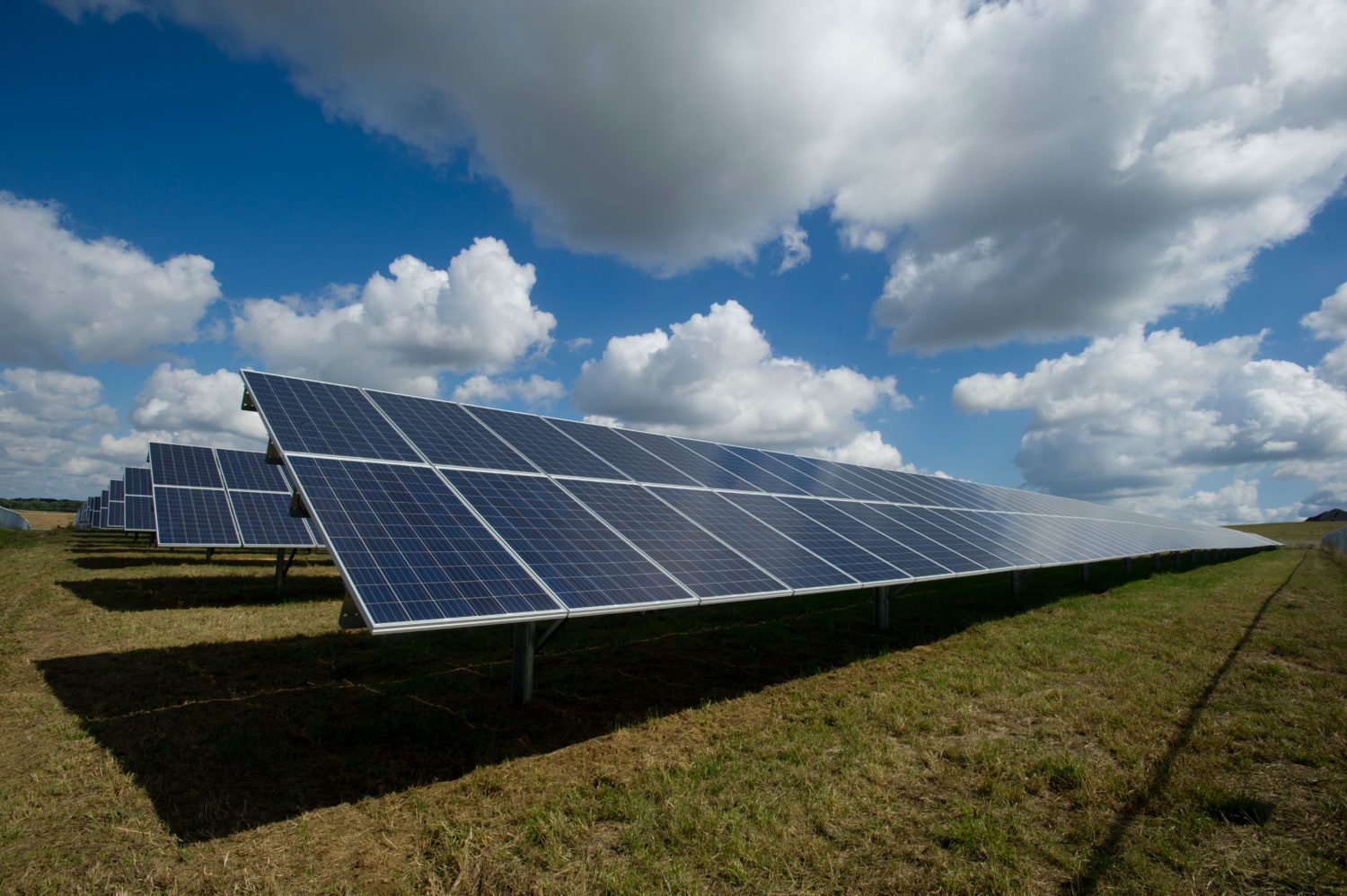
The Mid-South’s roadmap to a clean energy future
Solar power brought more than a billion dollars’ worth of carbon-free energy capacity to the Tennessee Valley in the past two years, according to the Tennessee Valley Authority, the country’s largest federally owned utility company. (Photograph of a photovoltaic array in Indiana courtesy of the American Public Power Association.)
Many cities in the Mid-South region of the United States have pledged to switch completely to renewable power on an ambitious timeline, but there’s a lot standing in their way.
“It’s a Herculean challenge,” said Alexander Headley, assistant professor of mechanical engineering at the University of Memphis, who moderated a panel on renewable energy in the Mid-South Oct. 24 during the ScienceWriters2022 conference in Memphis, Tenn. The session was part of the New Horizons in Science briefings organized by the Council for the Advancement of Science Writing.
Headley was joined by Leah Windsor, associate professor of applied linguistics at the University of Memphis; Andrew Campbell, decarbonization senior project manager with the Tennessee Valley Authority; and Kendra Abkowitz, chief sustainability and resilience officer for the Nashville metropolitan area and other cities within Davidson County. The panel discussed challenges, cultural impacts, and the ways local and state governments are working together to try and meet these energy goals.
The Nashville metropolitan area and Davidson County plan to completely switch to renewable power by 2041, said Abkowitz, adding that right now they have projects lined up that officials hope will get them 30% of the way there by 2026.
To cross the finish line, she said, local governments can play a significant role in creating local policies that either incentivize or require renewable energy solutions.
Solutions will vary city to city, and what works in Tennessee isn’t necessarily going to work in other states, she said. This has a lot to do with a region’s geography.
Campbell said wind power isn’t going to work in the Tennessee Valley because the area’s mountain ranges can block wind or lower its density. Solar power does work in the Tennessee Valley, although the light intensity isn’t as great as states in the Southwest, he added.
Outside of wind and solar energy, Windsor said officials should consider biomass, a renewable energy source that comes from plants and animals. Energy from organic material can be burned to create heat or converted into electricity.
Tennessee’s long growing season, ample rainfall, and fertile soil make biomass energy a good choice, she said.
But the sources of renewable energy will vary from the state’s rural and urban environments, Abkowitz said.
To better understand what works best for a city, she said it’s important that local officials include the voices from residents into the decision-making process.
The history of agriculture in the South is rooted in oppressive, inegalitarian structures that continue to impact marginalized communities, Windsor said. “So, on the one hand, we’re saying that renewables and regenerative sustainable agriculture is the solution. But it’s also been the foundation of the problems too,” she said.
Abkowitz said her office is aware of these issues and is actively working to address them through community events. Instead of hosting a public meeting about a renewable energy project, she said they’re meeting residents where they are to get feedback.
“We’re sort of embedding ourselves in an existing institution that’s already trusted,” she said. “I think leveraging those trusted community institutions is a great way to make sure that we’re building strong partnerships and building trust along the way. Without that trust, you’re not going to be able to go anywhere.”